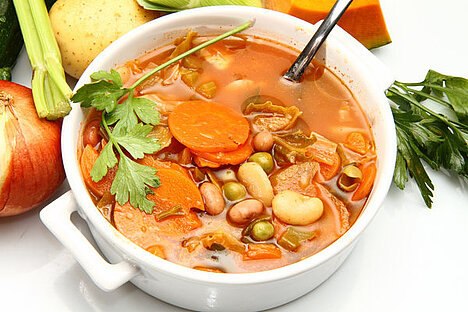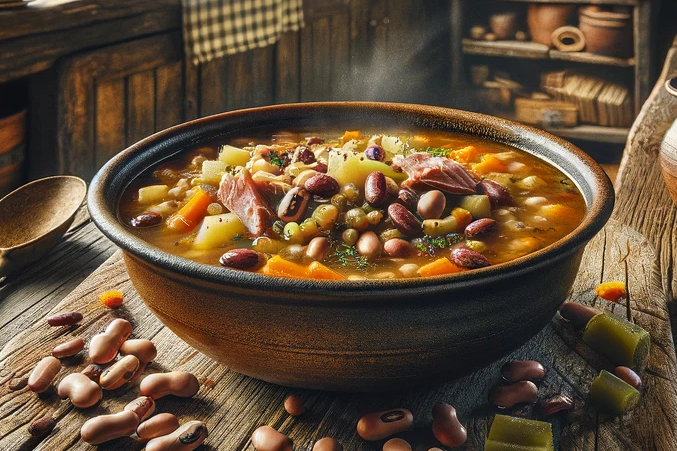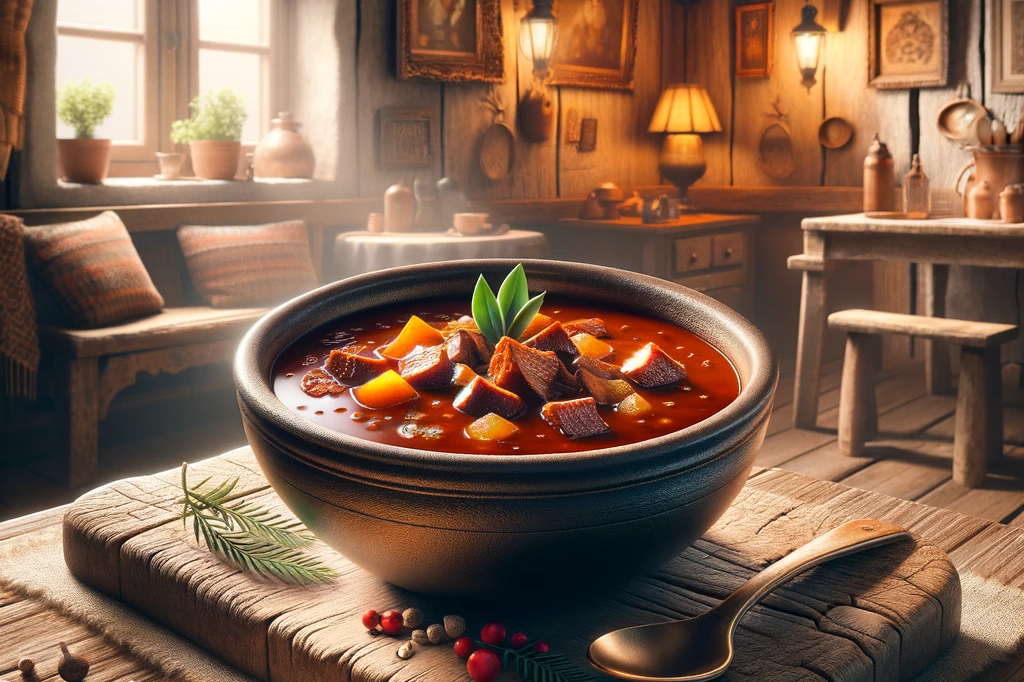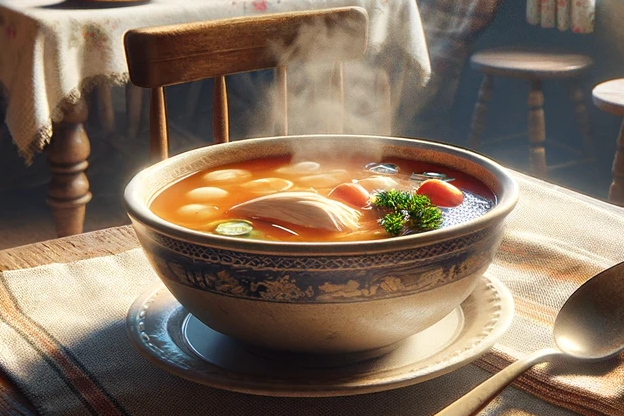Soup

Soup is a liquid or semi-liquid dish made from water, broth, vegetables, meat or other ingredients. It can be served hot or cold and is often a starter or main course. But is soup also suitable for dogs? In this article, you can find out more about the pros and cons of soup for your four-legged friend.
The benefits of soup for dogs
Soup can have some health benefits for dogs if it is prepared correctly. For example:
- Soup can help your dog stay hydrated, especially if they don't drink much or in hot weather. This can reduce the risk of dehydration and urinary tract infections.
- Soup can provide your dog with important nutrients that he doesn't get from his normal diet. This is especially true for soups with lots of vegetables, meat or bone broth, which are rich in vitamins, minerals, antioxidants and collagen.
- Soup can make your dog's food more palatable if he is fussy or has a poor appetite. You can simply pour the soup over his dry food or mix it with his wet food.
- Soup can help your dog with gastrointestinal problems such as diarrhea or vomiting. Soup is easy to digest and soothes the stomach. It can also balance the electrolyte balance, which can be disturbed by the loss of fluids.
The disadvantages of soup for dogs
Soup is not always good for dogs and can also have some disadvantages if it is prepared incorrectly or fed too often. For example:
- Soup can contain too much salt, which is harmful to dogs. Too much salt can increase blood pressure, strain the kidneys and lead to water retention. Therefore, you should always use unsalted or homemade soup and not ready-made soup from a can or jar.
- Soup can contain too much fat, which can lead to obesity and digestive problems. Too much fat can also irritate the pancreas and cause life-threatening inflammation. That's why you should always choose low-fat soups and avoid adding cream or butter.
- Soup can contain dangerous ingredients that are toxic to dogs. These include, for example, onions, garlic, leeks, grapes, raisins or chocolate. These ingredients can lead to anemia, kidney failure or poisoning. That's why you should always know exactly what's in the soup and not feed your dog leftovers from the table.
- Soup can disrupt your dog's normal diet if it is fed too often. Soup can increase or decrease your dog's calorie requirements and affect their nutrient absorption. Therefore, you should always see soup as a supplement and not a replacement for his food and adjust the amount.
As you can see, soup is not always good or bad for dogs. It depends on how you prepare it and how often you feed it. If you follow these tips, you can treat your dog to a tasty and healthy soup every now and then.
If you notice any signs of hypersensitivity or poisoning in your dog, you should see your vet immediately. We are not a substitute for a vet, but we try to be as accurate as possible. Every dog reacts differently and we recommend you get a second opinion or consult your vet if in doubt.
Stay healthy and take good care of your four-legged friend!😊
Similar to Soup
Bean soup is traditionally made from dried or fresh beans and can contain a variety of ingredients, including vegetables, herbs, spices and sometimes meat. Beans are known for their high protein,...
Pea soup, a traditional dish that has been appreciated in many cultures for centuries, consists mainly of peas, water or broth and various spices. At first glance, it appears to be a harmless and...
Goulash soup, originally from Hungary, has established itself as a popular dish worldwide. It typically consists of beef, peppers, onions, tomatoes, potatoes and a range of spices, which together...
Chicken soup, traditionally made with chicken meat, bones, vegetables and sometimes herbs, is known for its rich flavor and nutrient-rich composition. While it undoubtedly offers benefits for...



